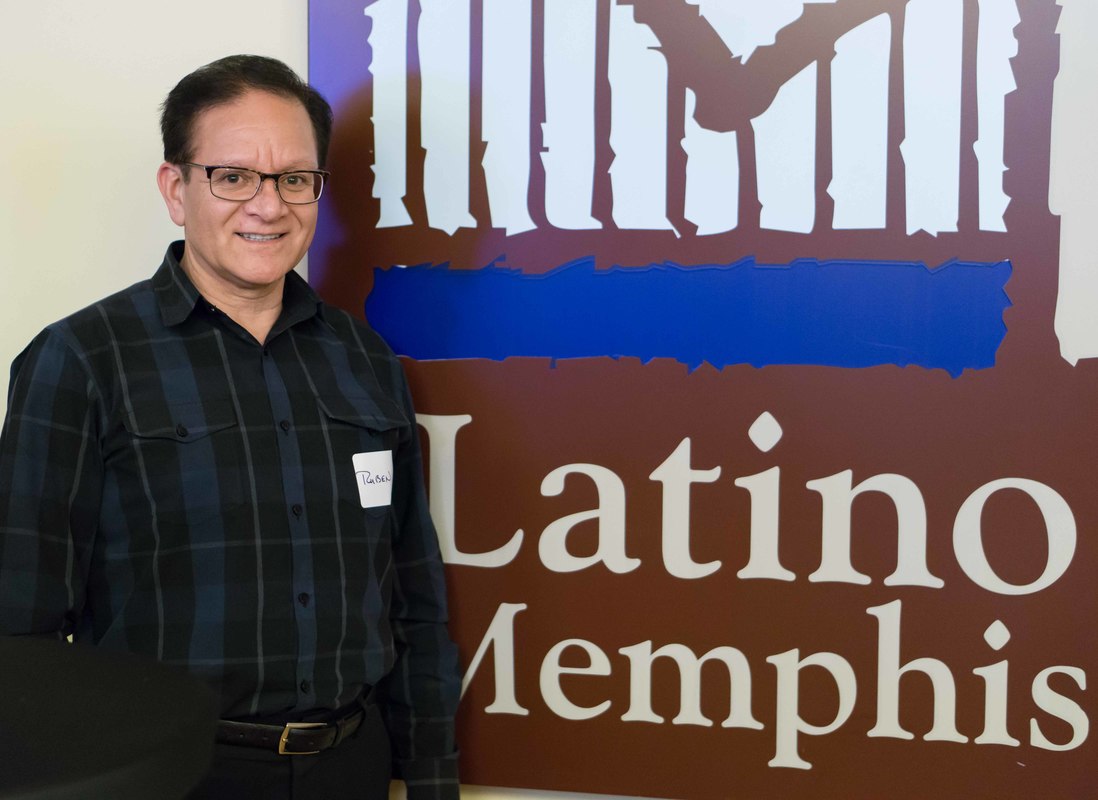“I’m Mexican, grew up in a Mexican home, and have pretty much a Mexican background. My father was a construction worker, and my mom was a factory worker. Neither one of them even graduated from junior high. I didn’t grow up with anyone telling me that education was important, so when I finished high school I really didn’t know what I wanted to do. I just wandered around for a while, but then I met some people who helped me learn about business. Eventually I got my college degree, and I’ve been with FedEx for 28 years now. I have an excellent career as a manager in the revenue department, and all because a few mentors in my life said, ‘You have potential. You can become more than what you see right in front of you.’
“A lot of Hispanics are just struggling to put food on the table, so they're not thinking much about education. I know young men who, at 15, have already started into labor as bricklayers or gardeners, and school comes second. It’s heartbreaking when you see that, when you see the potential that they have, and yet their parents put this burden on them, telling them: ‘You have to go work because we need to pay rent, we need to buy food, your younger brothers and sisters need to survive.’ It’s very real. You don’t think so, you don’t want to believe it, but I know so many whose lives are just like that.
“I mentored with Tennessee Promise for two years, and when Latino Memphis started their program, CAMINOS, I saw it as a perfect opportunity to get involved with Hispanic youth in the community. If we mentor them at 10th grade, 11th grade, 12th grade level, then they start thinking about goals and the future. It broadens their view of the world, and they say, ‘Oh, maybe I can be an engineer or a teacher of mathematics; maybe I can do something in business, in the professional world, that I don’t see anybody in my immediate surroundings doing. As mentors, we help them see the possibilities. My mentee, Jaime, is a good kid. He has a part-time job at a restaurant, so we have to work around his job schedule, school schedule, homework, things like that, but I'm there to show him what life can look like from a different perspective. I enjoy working with young kids. I like seeing the potential that they have and helping them see the potential in themselves. That’s what’s most important to me.”
“A lot of Hispanics are just struggling to put food on the table, so they're not thinking much about education. I know young men who, at 15, have already started into labor as bricklayers or gardeners, and school comes second. It’s heartbreaking when you see that, when you see the potential that they have, and yet their parents put this burden on them, telling them: ‘You have to go work because we need to pay rent, we need to buy food, your younger brothers and sisters need to survive.’ It’s very real. You don’t think so, you don’t want to believe it, but I know so many whose lives are just like that.
“I mentored with Tennessee Promise for two years, and when Latino Memphis started their program, CAMINOS, I saw it as a perfect opportunity to get involved with Hispanic youth in the community. If we mentor them at 10th grade, 11th grade, 12th grade level, then they start thinking about goals and the future. It broadens their view of the world, and they say, ‘Oh, maybe I can be an engineer or a teacher of mathematics; maybe I can do something in business, in the professional world, that I don’t see anybody in my immediate surroundings doing. As mentors, we help them see the possibilities. My mentee, Jaime, is a good kid. He has a part-time job at a restaurant, so we have to work around his job schedule, school schedule, homework, things like that, but I'm there to show him what life can look like from a different perspective. I enjoy working with young kids. I like seeing the potential that they have and helping them see the potential in themselves. That’s what’s most important to me.”

 RSS Feed
RSS Feed